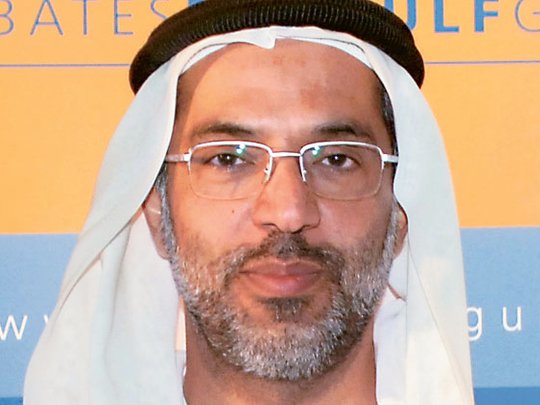
Dubai: The UAE government should cut costs and fees for local manufacturers to prevent them from losing out to competitors elsewhere in the Gulf, a top businessman has urged.
Jamal Al Ghurair, managing director of Dubai's Al Khaleej Sugar Refinery, said yesterday that the prices of land, energy, electricity, water and fees were too high for firms in the UAE, eliminating the country's competitive edge.
"The biggest challenge for an investor in the UAE — especially from the industrial side — is the cost of production. If we compare ourselves with other GCC countries we are a very expensive place to produce anything," Al Ghurair told Gulf News on the sidelines of the Kingsman Dubai Sugar Conference at the Grand Hyatt.
He said that Saudi Arabia, Qatar, Kuwait and Bahrain were all examples of cheaper markets for manufacturing companies, pointing out that while rates in those countries have remained static over the last five years, in the UAE they have increased.
"I think all other members in the GCC are better off than the UAE at the moment. For private sector companies [manufacturing], the UAE should not be the first choice," he said. "Historically we used to have a good advantage and we have lost it now."
Expansion
Al Khaleej, the world's largest sugar refinery, has operated in the GCC since 1995 and currently has a production capacity of 5,000 tons of refined sugar per day. The company recently announced a series of expansion projects that will push the level of production to 7,000 tons per day.
Al Ghurair said that as well as high costs in the firm's home market, competition from European producers was becoming more pronounced due to unfair tariffs on Gulf imports — tariffs, he pointed out, that were not reciprocated against European players in the Gulf.
"They are protecting their own industry, but the Europeans can export to hit our market and we have no protection," he said. "This is the unfair part."
Al Ghurair also cited competition from Europe and India in key buying markets such as Africa, meaning the company had to cut its costs to compete in the export market.
"We'll have to lower our margins," he said, although he ruled out making any staff cuts. "It's not that bad," he added. "I think [competition from] India and Europe will be over by the summer, by summer things will be better."
Al Ghurair said the current market for sugar favoured buyers, due to rising production and cheaper prices, and was upbeat about Al Khaleej's key markets, including those impacted by the Arab Spring in North Africa. "In sugar you have a stable consumption. Sometimes it might slow down for a month, but then it picks up again," he said.
Large stockpile
Commenting on 2011 more generally, Al Ghurair said the choppy market for the commodity was not unusual.
"It was the same as 2010, 2008 and 2009, and 2012 and 2014 will be the same. In sugar this is what you expect. You can't say 2008 was better than 2011, up and downs are always there," he said.
Al Khaleej recently added three new silos for raw sugar to its plant, each with a capacity of 160,000 tons, meaning that the company now has storage of one million tons. Sugar refineries use supplies to stockpile the commodity when prices fall too low.












